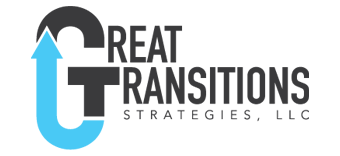Running a business unit for a large company or running your own business requires the same skills. You are responsible for leading and integrating all the cross functional parts of the business.
What do you think are the most important skills to be successful?
The leap to this level requires a broadening of your thinking, the ability to integrate functions, and deliberately set a culture.
This requires a myriad of skills not tested as a functional leader. We will evaluate the skills required by referring to the five areas of expertise as detailed in a previous blog post
Leadership
Setting the example. All eyes are on you particularly your subordinates and those unfamiliar with you. Walk your talk.
Integration of all the functions. As a functional leader you had expertise, longevity, and credibility within your silo. How you develop expertise in the unfamiliar functions will be critical to your success and reputation. Breaking away from the area you are most comfortable will be a challenge. Think of this as becoming a student of all the functions.
Broadening your perspective. You own the strategic long-term view, while executing on short-term operational goals. Profit, market share, market conditions, workforce, and stakeholders are your responsibility. All requiring your time and capacity.
Delegation. Doing only what you can do and delegate the rest.
Technical
Financials. Probably your most important technical skill. As the business leader you must able to read and interpret your business financials.
Mastering the requisite expertise of each functional area. You are likely an expert in one area and familiar with several others. But what is the required expertise to make you a credible decisions-maker?
Team Building. This requires selecting, making personnel moves, and developing individuals and the team. All with the focus to best support the business.
Tactical
This is the ability to apply the above technical skills in the context of the business.
Financials. Not just reading and understanding the data. You must interpret the long- and short-term implications and formulate plans to succeed in the current and predicted environment.
Team Building. Effectively operationalizing the team.
Delegation. You cannot do it all. The ability to provide clear expectations to your functional leaders will be the cornerstone of your success. Establishing roles, responsibilities, and limits of authority will provide boundaries for you and your leaders.
Ever experience a leader who tried to do it all? It sets up the leader and the team for burnout and frustration.
Cultural
Deliberately set the culture. If you are not deliberate, a culture will develop. Set the principles for the culture, model it, and enforce it.
Business
Integration of the strategic and operational. Your business exists for the long haul. Long-term visions are achieved through the incremental short-term operational decisions.
Summary
Running your own business or a business unit of a larger organization can be very rewarding. However, it requires broadening your skill set. This broadening entails becoming a strategic thinker who understands their limitations and becomes comfortable allowing others to do their work.
You lead through your understanding of the strategic picture, the market conditions, and your ability to build and lead your team.






